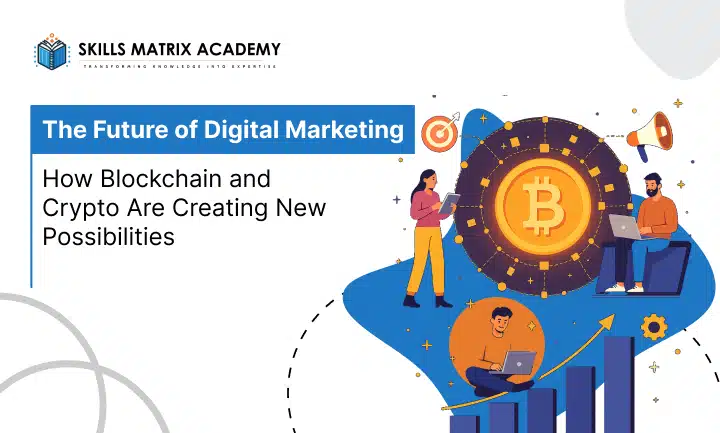The Information Technology (IT) industry is growing faster than ever before. From startups to global enterprises, IT is now a must-have for success in today’s technology-driven market.
Here’s how IT is powering change worldwide:
1. Digital Transformation
Businesses are leveraging IT infrastructure to transition to digital operations—automating processes, enhancing speed, and maintaining agility.
2. Smarter Communication
Thanks to advanced communication technologies, real-time collaboration and global teamwork have become seamless and more efficient than ever.
3. Business Innovation
Tech tools like AI, data analytics, and automation give companies a serious competitive advantage.
4. Emerging Technologies
The IT industry is expanding into areas like cloud computing, Cybersecurity, and artificial intelligence (AI)—shaping the global IT sector.
5. Stronger Security
Cybersecurity and secure technology solutions protect sensitive data and build customer trust.
6. Growth & Flexibility
Using IT for business helps companies grow faster, adapt better, and lead in the digital age.
What are the Top Information Technology (IT) Skills?

To grow in the Information Technology (IT) industry, you need more than just tech knowledge. The best IT professionals combine both technical skills and soft skills to solve problems, work with teams, and keep up with fast-changing technology. Enrolling in a professional IT training course in Jaipur can help you build these essential skills and stay competitive in the ever-evolving tech landscape.
1. Technical Skills: Your Core Strength in IT
These are the essential “hard” skills that make you stand out in the IT industry. Whether you’re aiming for software development, web development, or automation, you’ll need these tools in your tech toolbox.
1.1 Programming
Knowing how to code is a must-have for anyone in IT. It helps you create software, build websites, and automate daily tasks. Here are the four most in-demand programming languages:
Python
Python is a simple high-level language(human understandable), which is suitable for various technologies like- web development, data analysis, and automation work. Python allows several programming paradigms to be supported, such as procedural programming, object-oriented programming, and functional programming.
Java
A strong, platform-independent programming language commonly used for enterprise applications, Android development, and web applications.
JavaScript
The go-to language for front-end development. It is responsible for making websites interactive along with various features like form validation, animations, and real-time updates. Works smoothly with HTML and CSS and runs across all major browsers.
C++
It is also a high-level programming language, which is majorly applied in technologies like- system programming, game programming, and real-time programming. C++ allows detailed control over memory and performance, and it supports structured and object-oriented designs.
1.2 Data Analytics:
Turning Data into Smart Decisions
Data Analytics is one of the most in-demand IT skills today. It helps teams monitor performance data, detect security threats, and uncover gaps in business operations. Professionals like data engineers and database administrators play a key role in managing and analyzing data within the information technology field.
If you’re looking to build a career in this area, enrolling in a job oriented IT training course in Jaipur can give you the hands-on experience and practical knowledge required to succeed.
Data Analysis and Visualization
It means turning raw data into useful insights by collecting, cleaning, and organizing it.Using data visualization tools like graphs and charts helps tell a clear story—making it easier to explain trends and support better decision-making.
Machine Learning Algorithms
Machine learning enables systems to learn from data and make predictions without being manually programmed.
It is a game-changer for automation, pattern detection, and building intelligent systems.
Data Mining and Big Data
Data mining helps uncover hidden data patterns, correlations, and anomalies in large datasets.
It often uses big data—massive volumes of information collected from various sources—to fuel predictive analytics, AI, and data science.
1.3 Cloud Computing: Powering Modern IT Infrastructure
As more businesses move from traditional systems to the cloud, cloud computing has become a must-have skill.
There are three main types of cloud services:
- SaaS – Software delivered online without installation
- PaaS – Tools to develop and deploy applications without managing hardware
- IaaS – On-demand virtual servers, storage, and networking
Let’s look at the essential skills and tools needed in this area:
AWS, Azure, and GCP
These are the top cloud platforms used globally:
· Amazon Web Services (AWS)
· Azure cloud computing (Azure)
· Google Cloud Infrastructure (GCP)
They offer computing, storage, and machine learning tools—enabling businesses to scale, develop applications, and manage systems with greater flexibility and cost efficiency.
Cloud Architecture and Design

Cloud architecture and cloud design focus on organizing cloud components like storage, databases, and networks to meet specific business needs.
Good architecture ensures scalability, reliability, and high performance across cloud environments. It also makes cloud management much easier and more secure.
1.4 Cybersecurity:
Protecting Data and Systems in the Digital World
Cybersecurity is one of the most critical IT skills today. With rising cyber attacks and online threats, protecting systems and networks is a top priority for businesses.
Here are the key areas every IT professional should focus on:
• Network Security
Network security means keeping your systems safe from unauthorized access, misuse, and outside attacks.
It is done using tools like:
· Firewalls
· Encryption
These technologies work together to maintain data confidentiality, data integrity, and data availability, ensuring your information stays protected.
• Cybersecurity Frameworks
Cybersecurity frameworks are organized sets of rules and standards that guide how to manage cyber risks.
• Ethical Hacking
Ethical hacking is a completely legal and approved way of testing a system’s security. Ethical hackers are responsible for identifying security flaws before malicious hackers can exploit them. This proactive approach helps organizations fix vulnerabilities and stay ahead of cyber threats.
1.5 DevOps: Bridging Development and Operations
DevOps is a new emerging technology, which is responsible for combining development and operations into a smooth, fast, and efficient workflow. It accelerates software development, enhances team collaboration, and minimizes risks throughout the development pipeline. Here are the core DevOps components:
• CI/CD Pipelines
CI/CD pipelines is one highly demanding skill, which is responsible for automating the cycle of building, testing, and releasing code updates.
They ensure faster and safer software delivery by:
· Detecting bugs early with continuous integration ensures smoother development and fewer issues later.
· Releasing changes efficiently with continuous delivery
It reduces errors and improves team collaboration.
• DevOps Tools
Popular DevOps tools like Jenkins, Docker, and Kubernetes help automate processes and manage modern app infrastructure.
They support:
· In managing containers for scalable environments
· Deployment orchestration to simplify rollouts
These tools boost productivity, streamline workflows, and help teams deliver high-quality software faster.
2. Soft Skills: Every IT Professional Should Have
While the IT field is tech-driven, strong soft skills are equally essential for success. These people-focused skills help professionals grow, adapt, and thrive in today’s fast-paced work environments.
Here are the top soft skills you should build—and continuously improve:
2.1 Problem-Solving and Critical Thinking
Being good at problem-solving and critical thinking means you can:
· Identify various challenges quickly
· Choose the best option or solution for a specific problem
These skills help you handle challenging situations—both at work and in life—with confidence and clarity.
2.2 Communication Skills
Strong communication skills go beyond talking—they include:
· Listening carefully
· Articulating ideas clearly
These abilities improve team dynamics, build better relationships, and ensure your message is understood—especially in diverse environments.
2.3 Teamwork and Collaboration
Great results often come from great teamwork. Being a good collaborator means:
· Working together to achieve one common goals
· Laying the groundwork for open communication and teamwork
When everyone understands their role and communicates well, the whole team succeeds.
2.4 Adaptability and Flexibility
The IT world changes fast. That’s why adaptability and flexibility are must-have skills.
They help you:
· To adjust or make yourself comfortable according to the changing circumstances
2.5 Continuous Learning
To stay ahead every time, you must be committed to continuous learning. It means:
· Regular knowledge updates
· Staying open to new ideas and trends
It fuels innovation, supports lifelong learning, and prepares you for evolving roles in any industry.
How to Improve IT Skills
Improving your IT skills is essential if you want to stay competitive in today’s fast-moving tech world. Here’s how to level up:
1. Get Certified
To boost your credibility, earning a certification in your area of expertise is a smart move. Many employers look for professionals who are certified in their domain.
2. Stay Updated
The IT field evolves constantly. To stay updated with the latest technologies and research areas, make learning a habit. Here’s how:
· Explore research papers and technology journals to stay ahead of trends.
· Follow top industry experts and professionals
· Participate in coding events and hackathons to enhance your skills, solve real-world problems, and gain practical, hands-on experience
· Complete hands-on mini-projects
3. Focus on Your Soft Skills
Technical proficiency is necessary, but soft skills are what help you thrive in a team and create a positive work environment. Here’s what to build:
·Communication:Practice active listening, speak clearly, and respect different viewpoints to build stronger connections.
·Leadership: Take initiative and guide others when needed
·Problem-solving: Tackle challenges with logic and confidence
·Teamwork: Collaborate and build trust to meet shared goals
Future Trends in the IT Sector
The IT sector is growing fast, and staying ahead means knowing what’s coming next. Here are some key future trends to watch:
1. Artificial Intelligence (AI) & Machine Learning (ML)
AI and ML are transforming industries by automating tasks, enhancing decisions, and powering predictive analytics.
They’re driving personalized services and boosting operational efficiency in fields like healthcare and finance.
2. Internet of Things (IoT)
IoT connects smart devices to gather, exchange, and act on data in real time. It powers smart homes, cities, and industries with automation, real-time monitoring, and data-driven insights, improving the quality of life.
3. Cybersecurity
As digital threats rise, Cybersecurity becomes more critical.Tools like AI-driven threat detection, secure protocols, and advanced security tools protect sensitive data and ensure safety in digital ecosystems.
4. Blockchain
Blockchain offers secure, decentralized systems for data storage and verification.It’s transforming digital currencies, supply chain management, and secure transactions, while boosting transparency and reducing fraud.
5. Cloud Computing
Cloud computing provides scalable storage and flexible processing.Shifting to cloud-based infrastructure helps businesses save costs, improve collaboration, and enjoy global data and application access.










